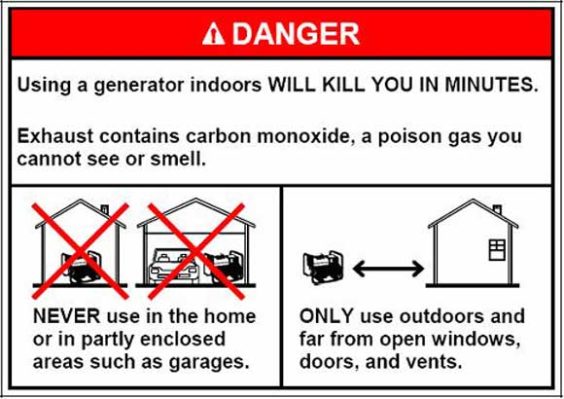TITUSVILLE FIRE: Eight Taken To Hospital Due To Carbon Monoxide Poisoning From Gas Generator
By Space Coast Daily // September 12, 2017
Titusville Fire offers rules for generator use

BREVARD COUNTY • TITUSVILLE, FLORIDA – After eight people were overcome by carbon monoxide poisoning and hospitalized in north Brevard, and Titusville Fire and Emergency Services officials issued an advisory on the best practices in gasoline generator use.
According to Brevard Fire Rescue, the incident happened in the 1600 block of Gayle Avenue in Titusville on Tuesday.
“We have had to transport eight people this morning as a result of a generator running inside of a garage,” said Titusville Fire officials. “This can be fatal”
With more than 60 percent of Brevard County still without electrical power, Titusville Fire reminds you do NOT use your portable generators inside your home or garage.
Follow these tips for safe portable generator use:
• Always read and follow the manufacturer’s operating instructions before running generator
• Engines emit carbon monoxide. Never use a generator inside your home, garage, crawl space, or other enclosed areas. Fatal fumes can build up, that neither a fan nor open doors and windows can provide enough fresh air.
• Only use your generator outdoors, away from open windows, vents, or doors.
• Use a battery-powered carbon monoxide detector in the area you’re running a generator.
• Gasoline and its vapors are extremely flammable. Allow the generator engine to cool at least 2 minutes before refueling and always use fresh gasoline. If you do not plan to use your generator in 30 days, don’t forget to stabilize the gas with fuel stabilizer.
• Maintain your generator according to the manufacturer’s maintenance schedule for peak performance and safety.
• Never operate the generator near combustible materials.
• If you have to use extension cords, be sure they are of the grounded type and are rated for the application. Coiled cords can get extremely hot; always uncoil cords and lay them in flat open locations.
• Never plug your generator directly into your home outlet. If you are connecting a generator into your home electrical system, have a qualified electrician install a Power Transfer Switch.
• Generators produce powerful voltage – Never operate under wet conditions. Take precautions to protect your generator from exposure to rain and snow.
CLICK HERE FOR BREVARD COUNTY NEWS














